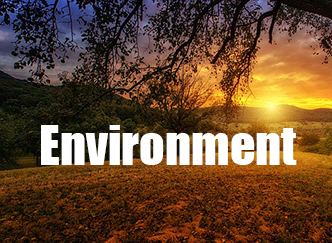By Winona LaDuke
I’m still waiting for my Indian Summer. That’s what we usually get in late September here in the north country. Instead we received four inches of snow. That’s climate change, well climate chaos. I could say “no problem” or, “it’s all good until the Monster Hurricane hits”.
That happened, too. Hurricane Michael made landfall in Mexico Beach, Florida. l55 mph winds and l4-foot storm surges will flatten your town. It’s the third most violent storm recorded in history. It’s not clear on the price tag for clean up, but somewhere between $4 billion and $20 billion. Michael is the 12th catastrophic storm to hit the US this year, making it a record year for sure. That’s on top of the forest fires which scorched the earth from British Columbia to California. Catastrophes of biblical proportions. That’s what we are facing, and that’s what the United Nations is also talking about.
A couple of things happened in October, besides the storms and the snow. The United Nations released a terrifying report on the l.5 degree temperature rise and what that means for us all. And two women went to trial in Bagley – charged with shutting off Enbridge’s Alberta Clipper and Line 4 – had their charges dismissed after pleading the “necessity defense”.
The UN Report
The UN report is sobering even for a fossil fuel addict like myself.
The UN warns there are only a dozen years for global warming to be kept to a maximum of 1.5C, beyond which even half a degree will significantly worsen the risks of droughts, floods, and extreme heat and poverty for hundreds of millions of people. Let’s put it this way: killer heat waves will toast many urban areas, storms that lay to waste cities or burn like the Hinckley Fire, will be the norm.
Our traditional maple syruping, wild rice, and fisheries will take a huge hit. And then there’s that flooding problem. New Orleans, Miami, large parts of Boston, New York City and Silicon Valley, not to mention Shanghai, Jakarta, Ho Chi Min City, Lagos, and Mumbai will be gone. These cities will be where we scuba dive. That’s because the polar ice shelves are melting.
And then there’s the coral reefs – toasted, along with probably a third of the world’s fisheries and agriculture will, according to the UN, take a hit at probably 40% loss in some countries, like ours.
As Jeff Goodell reports in the latest Rolling Stone, “There are not enough economists in the world to calculate the trillions of dollars worth of real estate that would be lost in a scenario like this. Nor are there enough social scientists to count the hundreds of millions of people who would be displaced. You think the world is a chaotic place now? Just wait.”
The report by the UN Intergovernmental Panel on Climate Change (IPCC) was released with approval of l95 countries. It says urgent and unprecedented changes are needed to reach the target, which they say is affordable and feasible. That means we need to do something NOW. That’s what necessity is.
Necessity Defense
In late October in Bagley, Minnesota, two women faced a trial for shutting down the valves at Enbridge’s Clearbrook Facility. They pled what is called the “Necessity Defense”. In short, defendants Annette Klapstein and Emily Johnson argued that they should not be held liable for their actions as a crime because their conduct was necessary to prevent some greater harm and when that conduct is not excused under some other more specific provision of law such as self defense.
Their actions, combined with similar actions in North Dakota, Washington and Montana, turned the manual safety valves on four pipelines, temporarily halting the flow of nearly 70 percent of the tar sands oil imported to the United States from Canada. Their charges were dismissed.
In explaining the necessity of their actions, Annette Klapstein told reporters, “We decided to do this because tar sands are the dirtiest and most climate-polluting oil that there is. … ( the pipelines) have to be shut down if we are to have a chance of having our children and future generations have a habitable planet.”
Dr. Anthony Ingraffea, an expert who authored the American Pipeline Institute pipeline safety guidelines, was prepared to testify before the dismissal, “I was to testify concerning two essential elements of the case. The first was whether Emily and Annette damaged the pipelines. They did not, as the judge ruled, damage the pipelines. The flipside of that is the question: Do pipelines and the petrochemical products they deliver damage, increase risk or harm anybody? The answer to those questions is an emphatic yes.”
Meanwhile in Trump world, the Administration cut the 20 person advisory panel which informs the EPA about microscopic air pollutants. Those pollutants impact Republicans and Democrats both.
Here I am, looking down the barrel of a tar sands pipeline (Line 3) that the Administrative Law Judge and the Department of Commerce maintain is not needed and has no appropriate route. A rogue decision by the Minnesota Public Utilities Commission (PUC) runs against every previous recommendation. Let’s be clear, Enbridge’s Line 3 is the equivalent of adding 170 million metric tons of new carbon to the air – carbon which should stay in the ground.
It’s a time of necessity, and time to say No. And get my Indian summer back.







